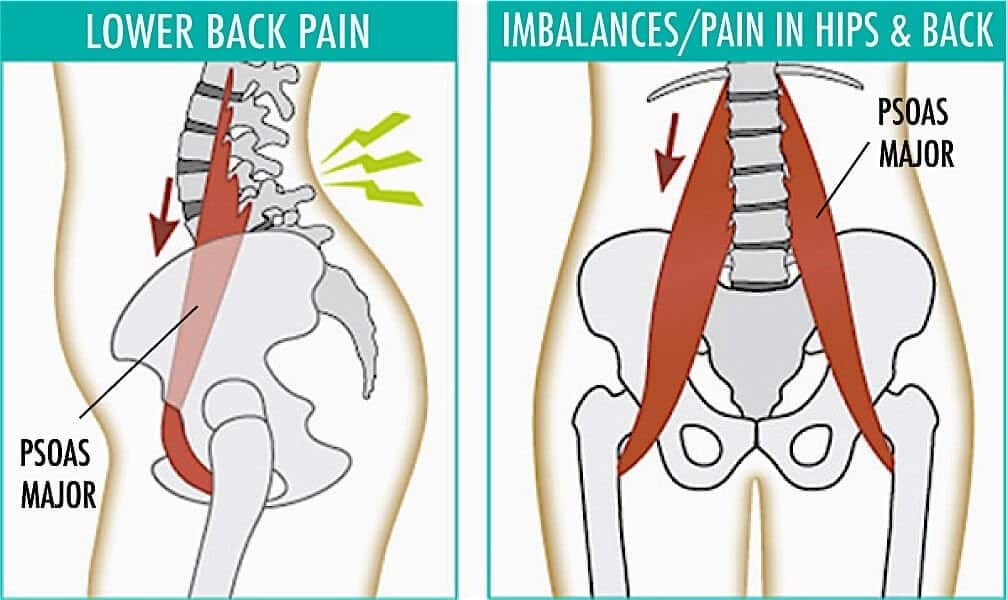Psoas syndrome is a medical condition that involves pain and discomfort in the psoas muscle. When the psoas muscle becomes irritated, tight, and inflamed, it can cause pain in the hip, thigh, and lower back.
The psoas muscle connects the lower spine to the thigh bone and involves many hip and lower back movements. The psoas muscle is located in the body’s abdomen and lower back region. It originates from the vertebral bodies of the lower lumbar spine (L1-L5) and inserts into the lesser trochanter of the femur bone in the thigh. The psoas muscle is a deep muscle lying deep to the abdominal muscles and is responsible for flexing the hip joint and stabilizing the lower back.
Symptoms of psoas syndrome can include lower back pain, hip pain, thigh pain, decreased range of motion in the hip, and difficulty walking or standing for long periods of time. Various factors, including overuse, injury, poor posture, and chronic conditions such as arthritis, can cause psoas.
Treatment for psoas syndrome typically involves physical therapy and stretching exercises to relieve tension in the psoas muscle. In some cases, anti-inflammatory medications, massage therapy, or other treatments may be recommended. Surgery may be necessary if the condition is severe or does not respond to conservative treatments.
Does chiropractic care help with Psoas Syndrome?
Chiropractic care can be effective for individuals with psoas syndrome. A chiropractor can perform adjustments and manual therapies to help relieve tension and pain in the psoas muscle and improve the function of the hip and lower back.
In addition, chiropractors often recommend stretching and exercises to help strengthen the psoas muscle and improve flexibility, which can help reduce the symptoms of psoas syndrome over time.
Chiropractic care can also help to address underlying causes of psoas syndrome, such as poor posture, muscle imbalances, and joint dysfunctions. By correcting these underlying issues, chiropractors can help reduce the risk of future psoas-related problems and improve the overall quality of life.
It’s important to note that the effectiveness of chiropractic care for psoas syndrome can vary depending on the individual, as each case is unique. If you have psoas syndrome, consult a chiropractor to determine if this type of care is right for you and develop a personalized treatment plan.
Dr. Natasha Hayden is a pediatric and prenatal chiropractor that is passionate about helping her community discover just how good their bodies are designed to feel, so they can do more of what they love.
Your health goals are within reach with the support of our team.

